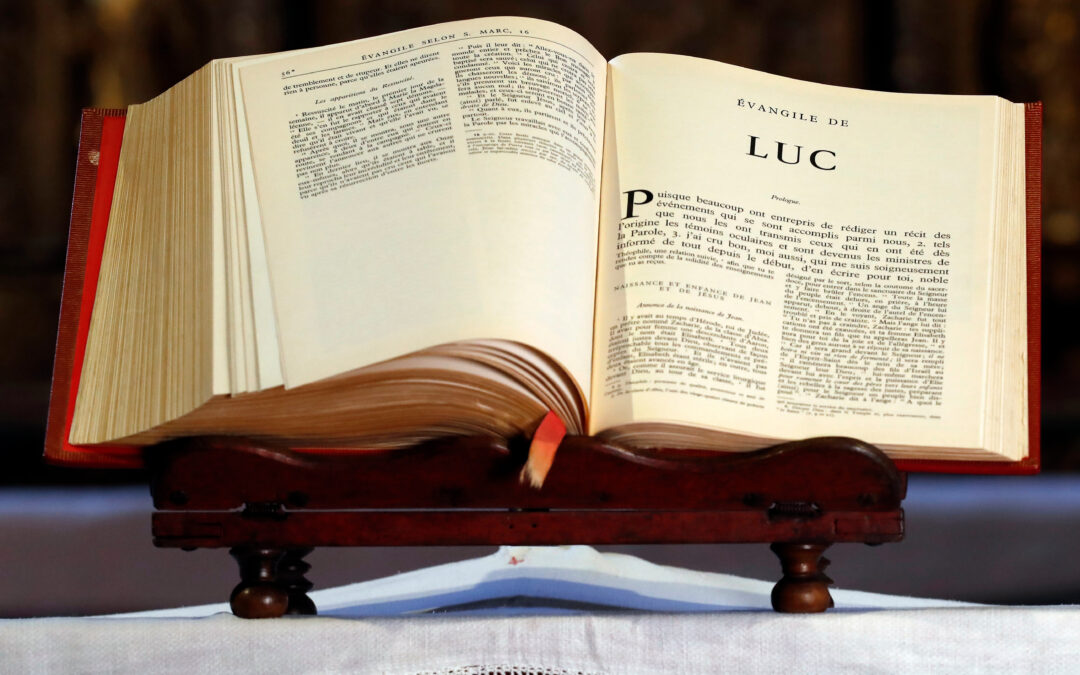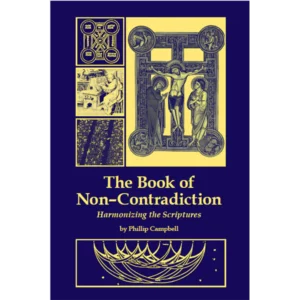The Historical Reality of the Gospels
Are the Gospels Historical
The reading of the Gospel is the centerpiece of the Church’s Liturgy of the Word. The Catechism of the Catholic Church calls them “the heart of all the Scriptures” (CCC 125). These four books are so central to our religion that we frequently refer to the faith as simply “the Gospel.”
The Gospels are our principal source of information on the life and teachings of Jesus Christ. But how reliable are the Gospels as historical documents? Skeptics criticize the Gospels as being legendary rather than historical. It is argued that the four Gospels were written centuries after the death of Christ, allowing ample time for the proliferation of legends and exaggerations. It is also argued that the Gospels cannot be historical because they allegedly contradict themselves.
There is much to consider when approaching this question, which I cannot hope to do justice in a little blog article. But I can point out some important facts to keep in mind:
Literary Genre
First, what is the genre of the Gospels? The literary genre pertains to the structure and intention of a written work. Understanding genre helps us understand what we are meant to take away from a piece of literature. If we know something is, say, a poem, we do not expect to get technical information from it; and, if we know that something is an instruction manual, we know we should not expect it to speak grandly to us about the human condition.
The Gospels present themselves as eyewitness accounts of historical events, and their structure is biographical in nature. We should, therefore, treat them as historical documents, similar to how we would read an ancient biography of Julius Caesar or a chapter from Plutarch’s Lives. Mythological literature has its own unique structure and style, which we do not see any of in the Gospels. People who say the Gospels are myth or legend have not read enough myth and legend to recognize its literary style.
First Century History
Second, do the Gospels square with what we know of history in the 1st century? That is, do they reflect authorship from the period they claim? Skeptics will sometimes argue that the Gospels were written centuries after the events they narrate. If this were true, we would expect the Gospels to reflect the world as it was known in the 200s or 300s, not the 1st century AD. This is not the case, however. In every respect the Gospels reflect the life of the Greco-Roman world of the 1st century, meaning it is incredibly unlikely they were composed later than 100.
For example, the Gospel accounts predict the destruction of the Jewish Temple in AD 70 but do not mention its destruction. Since the destruction of the Temple fulfilled the prophecies of Christ, it would be astonishing if the Gospels were written after 70 AD yet somehow failed to mention the Temple’s destruction. This suggests that the Temple was still standing when the Gospels were written—in other words, that they were written within 40 years of the death of Jesus, far too short a time for myth and legend to spring up, as there were still hundreds of persons living who knew Jesus personally.
This is just one example of how the Gospels imply a 1st-century setting. There’s so much more, though! A great book on this subject is The Historical Reliability of the Gospels by Craig Blomberg. This classic text has been the go-to resource for over twenty years for questions about how the Gospels fit into history.
Eyewitness Accounts in the Gospels
Finally, what about internal contradictions within the Gospels? Don’t the differences between the Gospels detract from their historical value?
To be sure, the four Gospels contain notable differences. But all eyewitness accounts do. If I interview four different persons about an event they witnessed, each story will be a little different. In fact, in criminal investigations, one sign that witnesses are lying is if their eyewitness testimony lines up too perfectly.
We must also keep in mind that each author wrote to different audiences with different purposes. Matthew was written to a Jewish audience to convince Jews that Jesus was the Jewish Messiah. Mark is an abbreviation of Matthew’s Gospel written to a Gentile audience to stress the power of Christ but without all the Jewish Old Testament background. Luke wrote to a friend to explain the events that had taken place surrounding the life and death of Jesus. John wrote to a Christian community in his old age to acquaint them with some of Jesus’s more mystical teachings. With such diverse purposes and audiences, we would expect the Gospel writer’s to stress different aspects of Jesus’s life depending on the interest of their readers.
Gospel Contradictions
However, what about situations where the Gospels aren’t just different but positively contradictory? For example, Matthew 27:5 says that Judas died when he hanged himself, but Acts 1:18 suggests that he fell and burst open. Skeptics point to passages like these to say the Gospels do not even agree amongst themselves on what really happened. In most cases, reading the passage a little closer can clear up the confusion.
For example, Acts 1:18 does not say that Judas died by falling, only that at some point, his body fell and burst asunder. Given that living bodies don’t just burst when they fall, we may presume this occurred after his death. Likely these passages mean that Judas hanged himself, but after some time the rope broke, he fell, and his corpse burst. This makes sense when one actually sees Akeldama, the place where he died;
Akeldama is a field punctuated by jagged rocky walls and precipices. Judas probably hanged himself from a tree on one of these many outcroppings; after he was already dead, the rope broke and his bloated body fell and burst asunder on the ground. Matthew noted only Judas’s suicide, while Luke recorded the interesting tidbit about Judas’s body for his audience in Acts. This is the traditional way Christians understood these passages.
Suggested Resources
This is only one example, but we can use this method to understand a great many of these alleged biblical “contradictions.” If you’d like to deepen your knowledge about understanding, I encourage you to get a copy of my book, The Book of Non-Contradiction: Harmonizing the Scriptures. This handy resource takes an in-depth look at tons of allegedly contradictory biblical passages and resolves them, demonstrating that they are complimentary, not contradictory.
You can also take one of Homeschool Connections’ Catholic apologetics courses from Gary Michuta. Gary has an excellent ten-session high school course entitled Defending the Bible in the Modern World. This course tackles all sorts of biblical questions and has two sessions on the formation of the New Testament and its historical reliability.
Conclusion
That’s about all we have time for today; perhaps we can revisit the subject in more detail in future posts. But the long and short of it is this—the Gospels are eyewitness texts written in the genre of historical biography, fully consonant with the life and culture of the period in which they claim to be written, and free from any defects of contradictions that would suggest they are either hoax or myth.
What are your thoughts on this topic? To continue the discussion, join me and other homeschooling parents at our Homeschool Connections Community or our Facebook group!







